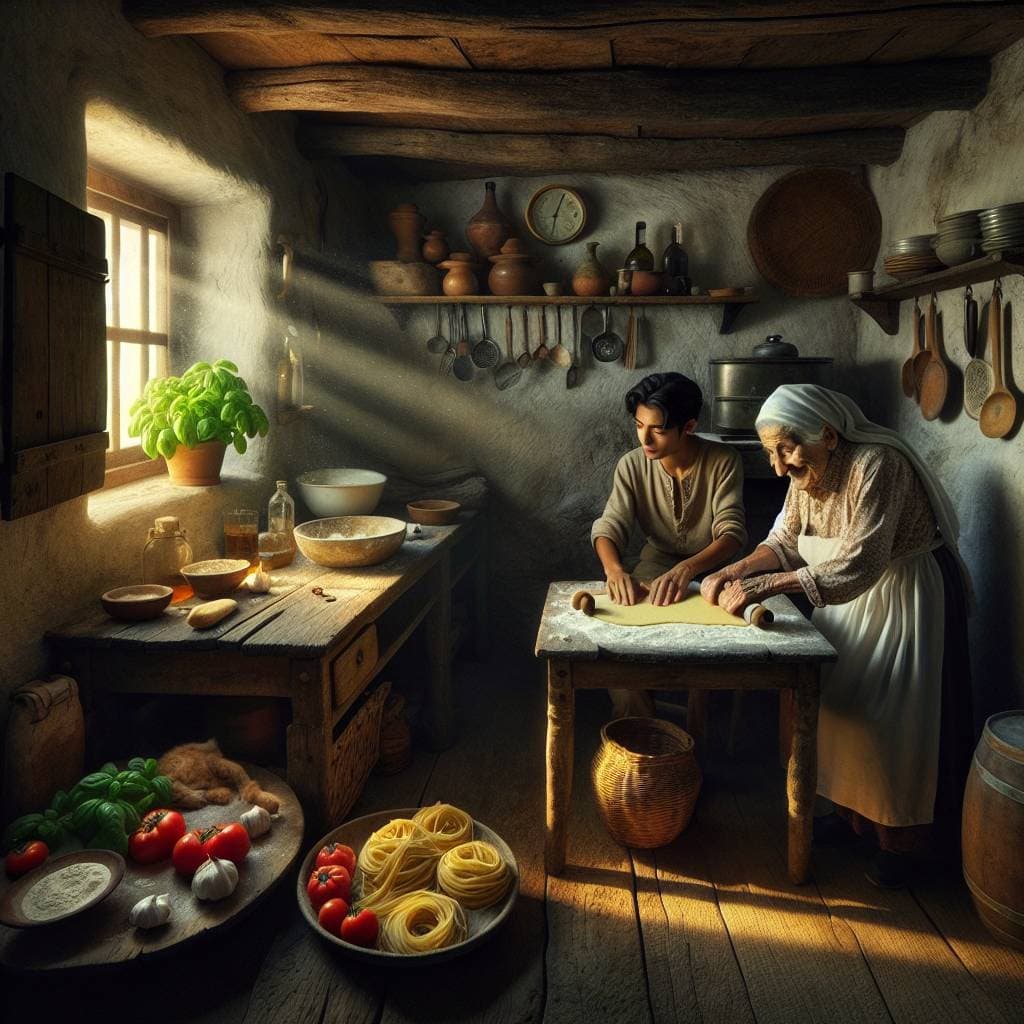Let me set the scene: I’m standing in a cramped Tuscan kitchen, feeling like an awkward giant amidst the smell of fresh basil and the sharp gaze of the nonna who clearly disapproves of my existence. Her name is Maria, and she’s about as forgiving as a falcon eyeing a mouse. My crime? An abysmal attempt at rolling out pasta dough. The dough sticks, tears, and mocks me, while Maria mutters something in rapid-fire Italian that I’m sure translates to “culinary catastrophe.” But here’s the kicker: I paid for this experience. I signed up to be verbally flayed and publicly humiliated, all in the name of authentic Italian cooking.

So, why subject myself to this? And why should you consider it? In this article, we’re going to peel back the layers—dough and otherwise—of what these cooking classes are really about. It’s not just about pasta; it’s about tradition, patience, and the occasional existential crisis when you realize your culinary skills are an affront to an entire region’s heritage. We’ll dive into the nitty-gritty of whether it’s worth the price of admission, what you actually learn, and whether you can ever look at spaghetti the same way again. Buckle up; it’s going to be a deliciously bumpy ride.
Table of Contents
What I Learned About Life (And Pasta) In a Tuscan Kitchen
In the dimly lit kitchen of a Tuscan farmhouse, I learned that life, much like pasta, is an exercise in patience and precision. The old Italian nonna overseeing our class had no room for half-hearted attempts or store-bought shortcuts. She wielded her rolling pin like a scepter, a reminder that food—real food—demands respect. And in that sacred space, I understood that crafting pasta is akin to navigating life’s complexities: you start with basic ingredients, but the magic lies in the transformation. It’s in how you knead the dough, coaxing it into something resilient and tender, much like how life molds you through its trials and triumphs.
But here’s the kicker—pasta making isn’t just about flour and eggs. It’s a lesson in humility. You realize that your first attempts are bound to be awkward, maybe even catastrophic. My initial attempts were an affront to the culinary gods, earning a well-deserved side-eye from nonna. Yet, in those moments of culinary failure, there was liberation. I learned to embrace imperfection, to find joy in the process itself rather than fixating on the end result. Isn’t that what life is? A series of messy, beautiful attempts where perfection is not the goal, but growth is. In Tuscany, among fragrant olive groves and sun-baked hills, I discovered that the art of pasta—and life—is about finding comfort in the chaos, savoring each imperfect bite along the way.
The Truth Behind the Dough
Is it worth the humiliation of a Tuscan nonna’s glare? Absolutely. Because what you learn isn’t just pasta making—it’s understanding that perfection is found in the imperfections.
Why the Dough Matters More Than the Destination
In the end, it’s not just about perfecting a recipe or mastering the art of pasta making. It’s about the humility that comes from realizing a lifetime of assumptions can be undone by a single afternoon in a Tuscan kitchen. The dough under your fingers becomes a metaphor for life itself—pliable, messy, and full of potential. You learn that no amount of reading or dreaming can substitute for the tactile reality of diving in, of getting your hands stained with flour as you fumble through the foreign yet strangely familiar territory.
But was it worth it? Absolutely. Because every strand of pasta rolled out on that ancient wooden table was a thread connecting me to something greater. To a tradition that defies the sanitized, Instagram-ready version of Italy. To a sense of community where a shared meal is sacred. And most importantly, to the realization that true understanding—whether of pasta or life—comes not from observation, but from participation. So, if you ever find yourself questioning whether to let an old Italian nonna critique your culinary skills, just do it. You might leave with a bruised ego, but you’ll gain so much more in return.


